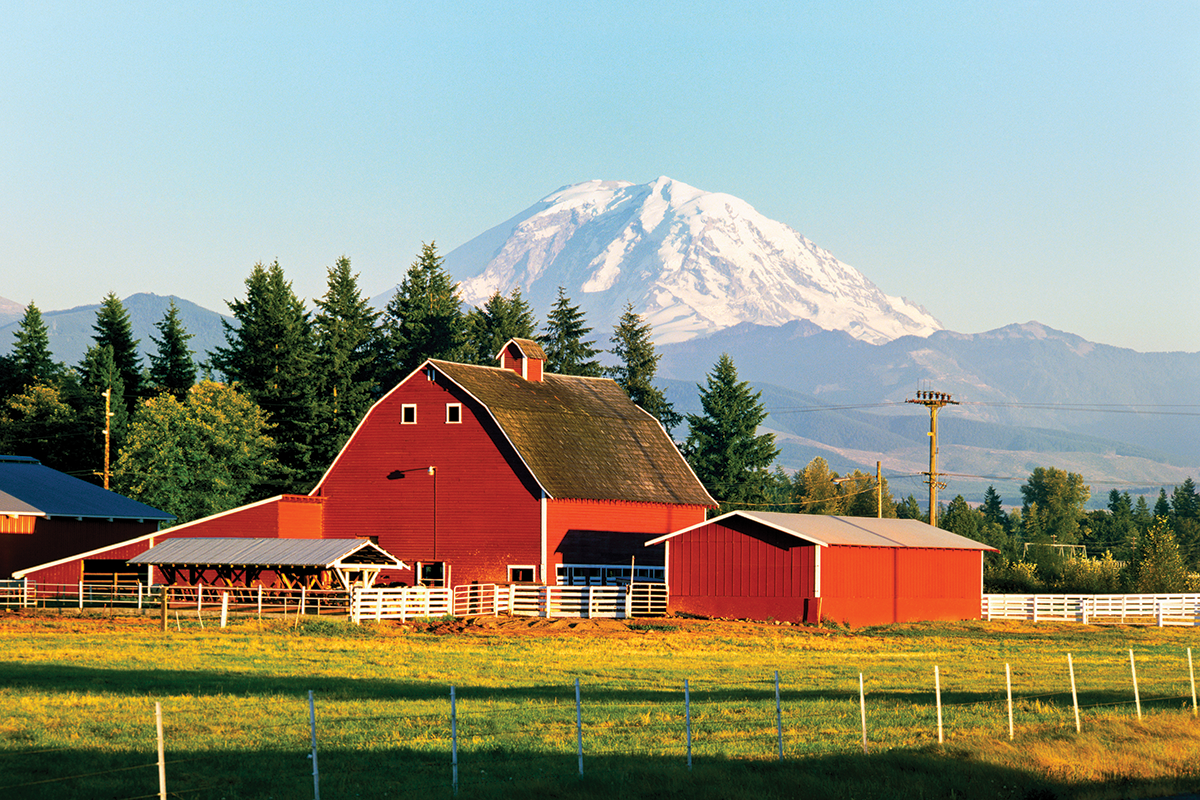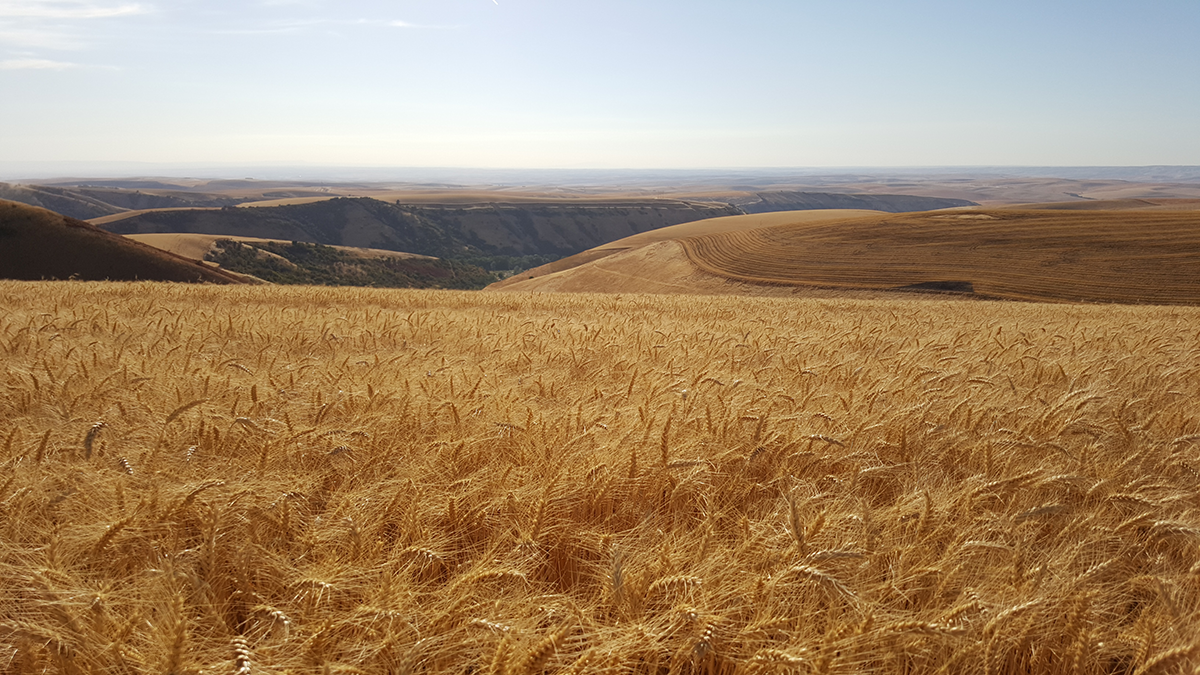Pacific Northwest Policy
American Farmland Trust has helped shape agriculture in the Pacific Northwest for over twenty years. We work with our partners to advance policies that protect farmland, support agricultural viability, enable farmers to adopt conservation and climate-smart practices, and bring a diverse new generation of farmers onto the land. We value strong partnerships, durable and strategic outcomes, and building bridges across challenging issues.
Washington

Despite land use policies intended to protect agriculture, Washington is struggling to keep farmers on the land. The 2022 Census of Agriculture shows that Washington lost 5.2% of farmland, the fourth highest in the nation. AFT’s Farms Under Threat analysis revealed that the state lost nearly 98,000 acres of farmland between 2001 and 2019. Farmers are facing challenges around the pressure of urban development, access to land and water, and the overall viability of agriculture.
AFT supports policies in Washington that:
- Fund the permanent protection of farmland and prioritize access for beginning farmers, farmers of color, and veterans, including the Farmland Protection and Land Access program.
- Advance goals to protect farmland from development, focus population growth into existing urban areas, and support agriculture in remaining viable.
- Support incentives that compensate farmers for providing public benefits with practices that improve environmental outcomes and sequester carbon.
Advance conservation and climate-smart practices that support soil health, farm viability, ecosystem services, and carbon sequestration.
Oregon

Oregon has the strongest land use protection framework in the nation. The statewide land use planning system was established by Senate Bill 100 in 1973, creating zoning exclusively for farming. However, this system is only as strong as the political will to keep it in place, and farmland protections have been chipped away over time. Farms Under Threat showed that while Oregon lost the least amount of farmland of all the states, it still lost over 65,000 acres between 2001-2019. For a deep dive into the threats that face farming, read Death by 1000 Cuts, a report from 1000 Friends of Oregon.
AFT supports policies in Oregon that:
- Strengthen the statewide land use planning system while defending against policies that would weaken its ability to protect farmland.
- Fund the permanent protection of agricultural land and conservation management planning through the Oregon Agricultural Heritage Program.
- Advance soil health and other climate-smart practices that support farm viability, ecosystem services, and carbon sequestration.
Idaho
At first pass, Idaho’s vast and robust agricultural economy, at 20 percent of the state’s annual GDP, appears invincible. However, several dynamic conditions, such as exploding population growth, drought conditions and water scarcity, supply chain disruption, and soil health decline are putting the longevity of our family farms and ranches at risk.
Assuming business as usual, Idahoans will pave over, fragment, or compromise 113,075 acres of farmland and ranchland between now and 2040. That’s the equivalent of losing 718 farms and ranches, $72 million in annual agriculture output, and 1,513 jobs based on county averages. Eighty-three percent of the conversion will occur on Idaho’s best land.
Many Idahoans and local organizations have been calling for agricultural protection for decades. In collaboration with a diverse network of partners and stakeholders, AFT is working hard to raise awareness of this threat and identify appropriate tools and strategies to pump the brakes on rampant growth and protect the future of Idaho’s agricultural land.
AFT supports policies in Idaho that:
- Strengthen long-term planning for agriculture and food systems.
- Create voluntary opportunities for landowners to protect their land and water.
- Incentivize soil health and water conservation practices.
- Support the viability of multi-generational farm and ranch operations.

